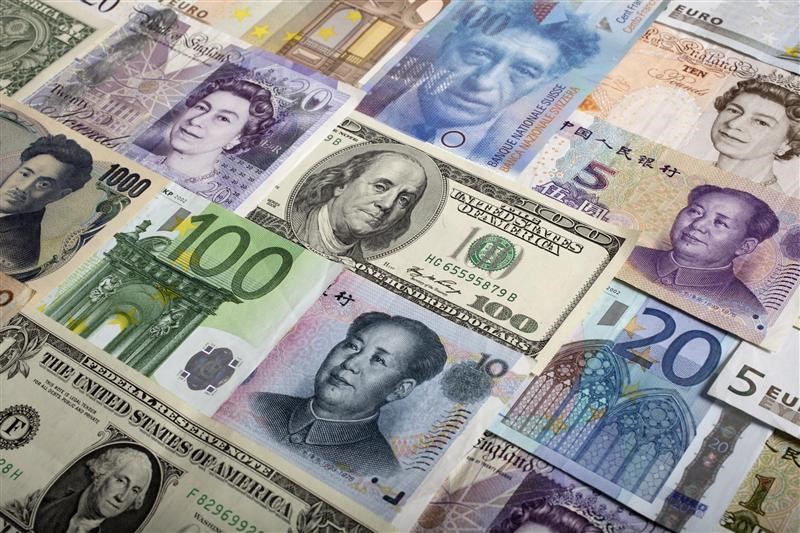* Nationwide demonstrations began on Oct. 8
* Police unit disbanded after abuse allegations shared
online
* Protesters say they want deeper reforms
* Activists use social media to crowdfund bitcoin donations
By Alexis Akwagyiram
LAGOS, Oct 19 (Reuters) - Ozioma Egemasi says Nigerian
police slapped, whipped and struck him with the butt of a pistol
when he refused to pay them a bribe. Then he heard them discuss
whether to kill him.
The 24-year-old music label manager shared his experience on
Instagram, one of thousands of mostly young Nigerians who are
taking to social media to speak out against alleged abuses by
police and to coordinate ongoing protests.
Thousands of people have taken to the streets daily across
the country in one of the biggest shows of public anger in 30
years, posing a major challenge to President Muhammadu Buhari
amid an economic slump made worse by the coronavirus pandemic.
"I was scared. It meant they were willing to do anything to
get whatever they wanted to get from me," said Egemasi,
recalling the January encounter with members of Nigeria's
Special Anti-robbery Squad (SARS).
Reuters could not independently verify his account. A Lagos
state police spokesman did not respond to phone calls and a text
message seeking comment on the allegations.
The police force has previously denied accusations against
SARS that are fuelling the unrest, although it said earlier this
month that "unruly and unprofessional" officers had been
arrested and were facing disciplinary actions.
Other concessions have been made since nationwide
demonstrations began on Oct. 8: SARS was disbanded on Oct. 11
and a new police unit, the Special Weapons and Tactics (SWAT)
team, was created to "fill the gaps".
But it has not had the desired effect. Protesters say they
have heard such promises before and demand deeper changes,
including the prosecution of police accused of wrongdoing.
Rallying under the #EndSars hashtag and harnessing social
media to raise awareness and funds and to garner support from
international celebrities, protesters have built a momentum that
previous actions led by civil groups and unions failed to do.
There are clear parallels with anti-government movements in
places like Hong Kong and Belarus, said Antony Goldman, chief
executive of London-based political risk advisory firm ProMedia
Consulting.
"They have increasingly connected young, urban populations
that have found a cause, and social media has triggered very
rapid momentum," Goldman said.
The Nigerian protesters have drawn support from Black Lives
Matter activists in the United States, including the movement's
co-founder Opal Tometi, and from Canadian rapper Drake and
British-Nigerian actor John Boyega.
A Twitter account using the name of the internet activist
collective Anonymous said last week it had hacked into Nigerian
government websites in solidarity with the #EndSars campaign.
Government officials did not confirm any breaches. L8N2H80L6
TECH TARGETS?
Members of Nigeria's burgeoning tech industry, a bright spot
for foreign investors in Africa's most populous nation, say they
are often singled out by police for spot checks.
Iyinoluwa Aboyeji, co-founder of software developer training
firm Andela and payments company Flutterwave, said so many
employees had been harassed that his companies had protocols in
place to call senior police officials in the event of an arrest.
Egemasi said his laptop and financial transactions on his
cell phone aroused the suspicion of the five SARS officers who
stopped him in a Lagos street at the start of the year.
"This happens all the time to young people because they
believe we are young and not supposed to have that kind of
money," he told Reuters.
He said he was freed after paying a 500,000 naira ($1,300)
bribe.
As he spoke, Egemasi was surrounded by more than a thousand
protesters at a toll gate in the upmarket Lekki district of
Lagos on Saturday.
Music blared out of tall speakers. A giant electronic
billboard displayed slogans such as "Soro Soke", a Yoruba phrase
meaning "Speak Up". And activists doled out free food and
collected litter in black plastic bags.
CROWDFUNDING
Such gatherings have largely been financed through
crowdfunding, activists say.
The Feminist Coalition, a Nigerian rights group coordinating
some of the logistics, said on its fundraising page it had
received more than 73 million naira ($192,000) as of Sunday.
The funds have been used to hire private security guards to
defend protesters against armed gangs who attacked some
demonstrations last week, pay for private ambulances and cover
the legal bills of more than 70 participants arrested across
Nigeria, according to a spokeswoman for the group.
The crowdfunding is necessary to avoid political
interference, said the spokeswoman, who asked not to be
identified for fear of censure by the government.
"This is a decentralized, democratic process."
Two Nigerian banks closed the group's accounts last week, so
they converted their savings to bitcoin and started fundraising
in the cryptocurrency, she added.
Donations soared after Twitter Inc CEO Jack Dorsey on
Wednesday posted a tweet https://twitter.com/jack/status/1316485283777519620?s=20
encouraging his nearly 5 million followers to contribute.
The crowdfunding has helped make the demonstrations among
the biggest and longest-running in decades, said Cheta Nwanze of
SBM Intelligence, a Lagos-based risk advisory firm.
The provision of free food was a "very good use of
resources," he added. Most people live on less than $2 a day.
"It's helping to sustain the momentum."
($1 = 380.6000 naira)
